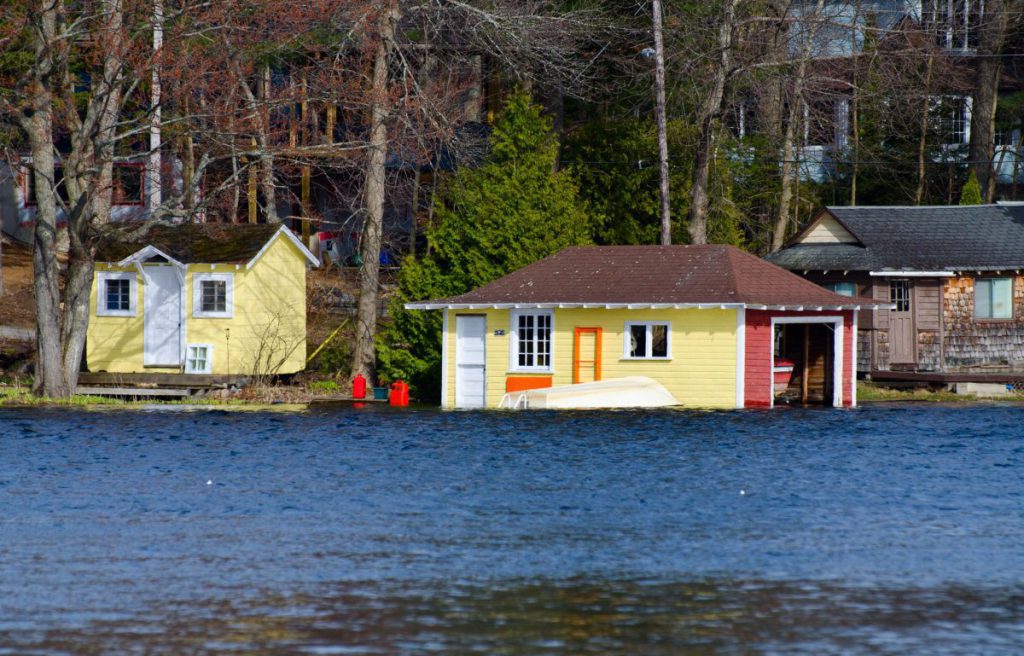Now what?
After the record flooding this past spring, Canadian cottagers are reckoning with a new normal that means greater risk to their properties and less protection.
This past spring, as historic flooding hit Central Ontario cottage country, Liz Beatty was grateful her great-grandparents built their Lake Muskoka cottage on high ground and situated the boathouses on the lee side of the island. What’s more, she was grateful for whatever bit of intuition prompted her to store her family’s vintage boat, one of the first fibreglass boats on the lake and one that has transported them to and from their island since 1956, on the mainland instead of in their one-slip boathouse like they usually do. “Thank God I did,” she says, noting the stories and photos of high water and ice crushing boats against the ceiling beams of boathouses.
Beatty was among thousands of cottagers (and homeowners, many of whom were evacuated) in Ontario, Quebec, and New Brunswick who braced themselves as states of emergency were called in areas of all three provinces. Lots weren’t as lucky as Beatty and suffered property damage, ranging from disappeared docks, sagging boathouses, and, in many cases, collapsed structures. The Insurance Bureau of Canada expects claims from severe weather to top $1 billion this year.
However, poring over their insurance policies likely didn’t comfort cottagers. Flood coverage for waterfront properties is expensive and can be hard to find. Until 2015, Canada was the only G7 country that didn’t offer overland flood insurance and it remains the only G7 country without a national food plan, says Pete Karageorgos, a director, consumer and industry relations with the Insurance Bureau of Canada. “High-risk properties are generally unprotected.”
While the federal government spends roughly three dollars on mitigating damage from floods for every one dollar the insurance company pays out, according to estimates from IBC, that’s not likely to help cottagers either, who aren’t eligible for compensation from either the feds or provincial governments since that funding is only for those whose principal dwellings are damaged. The federal government is putting money and attention toward predicting and responding to threats, such as floods, but a press statement notes that “most emergencies in Canada are local in nature and are managed by municipalities and communities, or at provincial…level.” (Recreational property owners in New Brunswick can get free well-water testing, and fees for reconnection of electrical systems and solid waste tipping fees will be waived.)
What can a cottager who just wants to sit on her dock and drown her sorrows in a cold beer do? Particularly when her dock is still under water?
Be patient, says Kelly Fallis of RS Muskoka and a realtor for the Lake Muskoka and Gravenhurst area. “When patience wears out, the natural thing is to bring in someone from outside the area, people who don’t know how to build a dock properly,” she says. If you’re tempted, just make sure they have experience with docks and boathouses.
Beatty expects that “this new normal is going to change the way people close, how they store things, how they rebuild things,” she says, “even which properties that they buy.”


